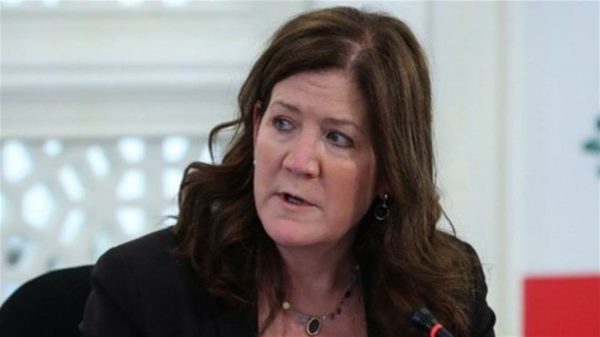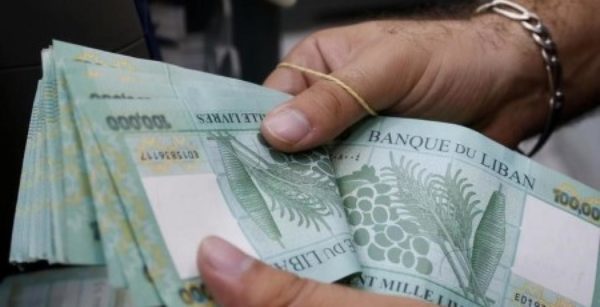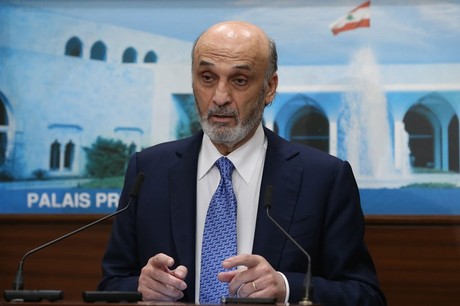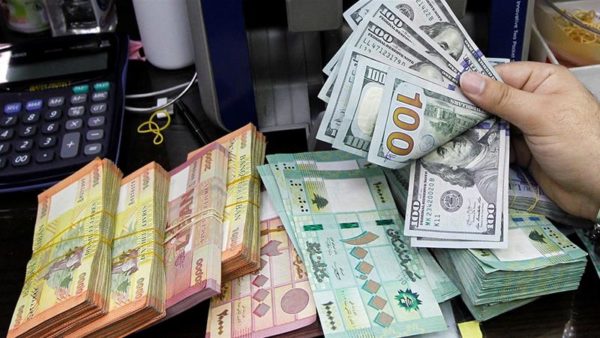
BEIRUT — Lebanon’s currency hit new lows Friday as the country’s financial and economic collapse accelerated, heralding more misery for the millions of Lebanese who have seen the value of their savings and salaries wiped out.
The Lebanese pound traded on the black market at 7,000 to the dollar, a slide of 40 percent just in the past week as people race to convert their increasingly worthless Lebanese Liras into scarce dollars to hedge against further anticipated decline.
U.S. Ambassador to Lebanon Dorothy Shea on Friday accused Hezbollah chief Hassan Nasrallah of threatening Lebanon’s stability and his party of preventing a solution for Lebanon’s dire economic and financial crisis.
In an interview with Al-Arabiya’s al-Hadath TV, Shea said Hezbollah is in control of Hassan Diab’s government.

She added that Washington would support any reformist government not controlled by Hezbollah noting that such a government should be comprised of experts and that Diab’s government has not yet achieved the promised reforms.
Charging that Hezbollah ’s so-called mini-state has cost the Lebanese treasury billions of dollars, Shea said Washington has major concerns over the group, which is on the U.S. list of “terrorist” organizations.
Noting that Washington is among Lebanon’s biggest supporters in terms of aid, the ambassador said the Lebanese are not suffering due to U.S. policies but rather because of decades of rampant corruption.
Shea also said that the demands of the Lebanese are legitimate, calling on the government to address the demands of the October 17 uprising.
As for the Caesar Act, the ambassador reiterated that it does not target the Lebanese people or economy but rather the finances of the Syrian regime.

Similarly former Lebanese president Michel Suleiman blasted Hezbollah and the so called ‘Resistance’ during the “national unity meeting” in Baabda on Thursday. “Hezbollah has broken the agreements, which prevented the implementation of the state’s pledges, caused its deadly isolation, made it lose its credibility and the confidence of friendly countries and Lebanese living abroad, made it lose investors, depositors and tourists, which have all contributed to the decline of the national currency,.”

UAE’s minister of state for foreign affairs, Anwar Gargash, went one step further in his assessment of the country’s plight. “Lebanon is paying the price of deteriorating ties with wealthy Gulf Arab states as it struggles to cope with a deep economic crisis,” he said in an interview.
He regarded Lebanon’s economic meltdown as “very worrying” and said that the UAE would only consider offering financial support in concert with other states.
“If we see some of our friends and the major powers interested in Lebanon and working in a plan, we will consider that. But until now, what we are really seeing here is a deterioration of Lebanon’s Arab relations and Gulf relations over the past 10 years. Lebanon is partly paying the price for that right now.”
The minister added that there had been an “accumulation of problems” in Lebanon and “a dictation” of political discourse by Hezbollah which had an “army within the state.”
Lebanese Forces leader Samir Geagea on Friday derided the outcome of the dialogue meeting held Thursday in Baabda, after the dollar reached a new high on the black market.

“Baabda’s ‘unifying national’ meeting yielded immediate results. As soon as the closing statement was recited, the dollar made an unprecedented jump,” Geagea said in a tweet.
Geagea and most opposition parties boycotted the meeting, decrying what they called the lack of a clear agenda and the failure to address the country’s real problems.


Leave a Reply
You must be logged in to post a comment.